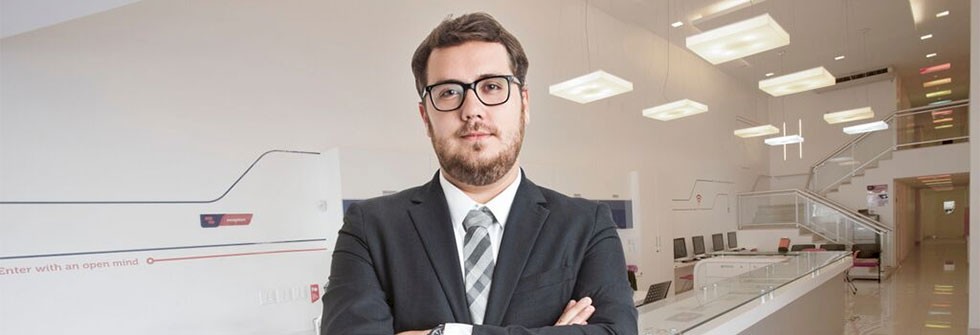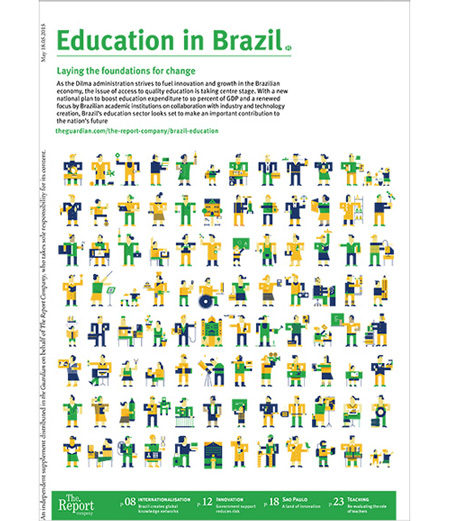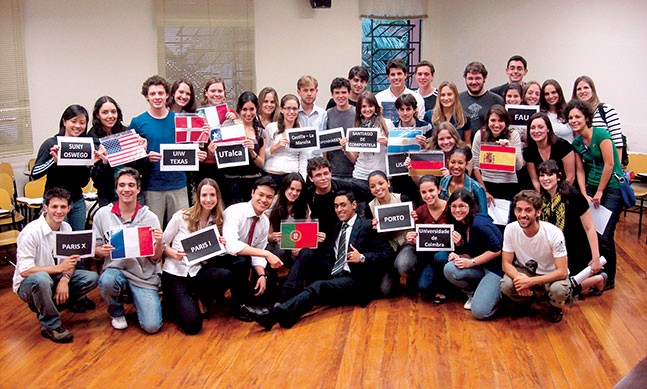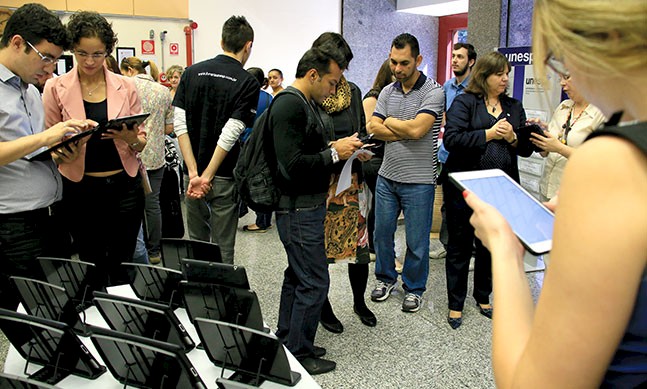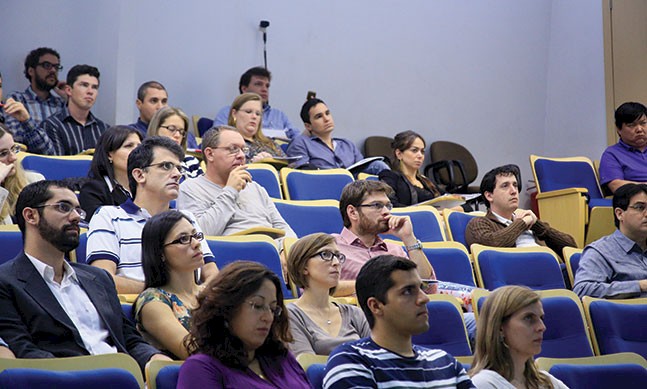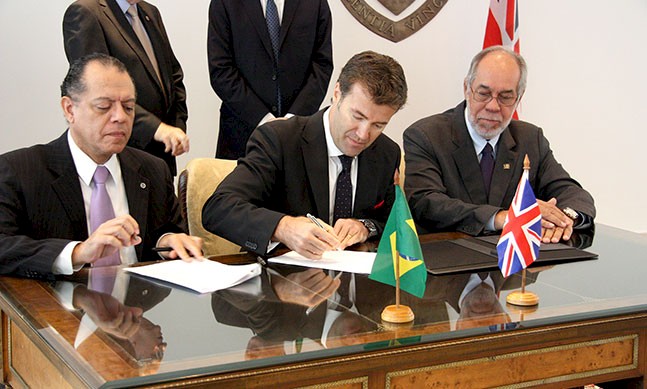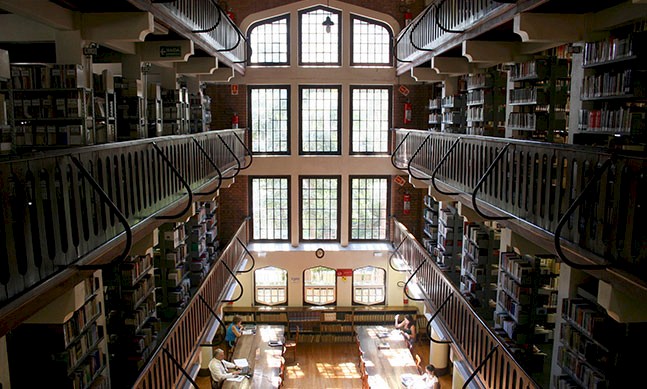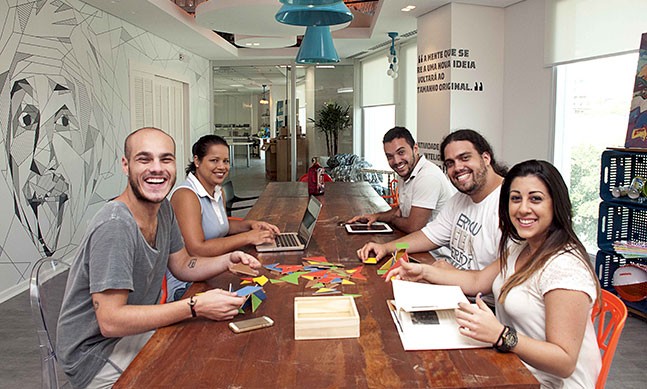BRASAS was set up as a family company in 1967 to offer language tuition across Brazil. Today, its team of highly-trained teachers offers in-depth English classes to executives, students and government employees based on its unique methodology. The Report Company met with Peter George O’Donnell, president of the company, to find out more.
The Report Company: What does Brazil need to do to take better advantage of the potential for links with the UK and US in education?
Peter George O’Donnell: Universities have found it difficult to fill the positions they have for candidates in the Science without Borders programme, since most of the candidates lack the required knowledge of English. As a result, many of these study opportunities are not being taken by Brazilians. We believe some people just want to learn enough to pass the test, not actually to learn English. We could be sending more and more people out to take part in programmes like that, but there needs to be a change in attitude towards English preparation.
TRC: What feedback have you received from people who have gone on the Science without Borders programme?
PGO: People come back saying: “I need to learn English”. They are telling other students to prepare themselves better. Brazilians can do really well. They are creative and they are hard working. They manage to get ahead. But most of them are not used to doing the preparation for these programmes so they don’t prepare themselves in the way they need to.
I believe a lot more people are getting to know about this opportunity. When Science without Borders started, there was something of a boom in numbers. It went down a bit and then it went back up again. This was because at the time, the dollar was around 2,000 reals. Brazil was in a great place, and there were no incentives from the government for people to study, so people didn’t want to leave their jobs just to go to a foreign university for a semester of studies there. Now things have changed.
TRC: Where do you see opportunities for English teaching?
PGO: I thought the World Cup would get us higher numbers. I thought the Olympics would get us higher numbers. Last year we had good sign-ups in the beginning of the year but then people got to the World Cup and the economy took a wrong turn. We are one of the most expensive schools in Rio. Price is very sensitive. Everybody is asking us for discounts. Sixty percent of the people who left our schools in 2013-2014 did so because of money. We partner with a lot of universities and we’re currently getting into schools. We are entering the curriculum with our classes and our teachers. It’s better to start when young. We have managed to sustain a small but significant growth.
“We could be sending more and more people out to take part in programmes like Science without Borders, but there needs to be a change in attitude towards English preparation.”Tweet This
TRC: How is Brasas structured?
PGO: We have 55 schools and around 30,000 students in Brazil. We grow by one or two schools a year. We have 700 teachers. This was a family business, but we decided that I should take over after a two-year break to go to Boston to do a graduate programme. When I took over, we didn’t have a strategic plan in place, so we couldn’t prepare our actions to best suit our schools, or where we should focus on in the business. I started changing that. We internalised the accounting. I brought in two consultants to help me professionalise the business. The market changed a lot during those two years I was away. Now we are dealing with investment funds or big publishing companies as competitors. But today we are prepared as a company for this environment.
TRC: How do you position Brasas compared to your competitors?
PGO: We are not price competitive and people come to us because they want quality and they know we can deliver it. That is our niche. Our reputation is to be one of the best English schools for adults but we are also increasing our number of students under 14. This is one thing we are changing since our programme for kids is just as good as the programme for adults. We have also started teaching Portuguese for foreigners. We work with a lot of corporations and that was one of the services they needed for the expatriates arriving in the country who needed to adapt quickly – again, English isn’t commonly spoken in Brazil and those expatriates need to learn some commands in our language quickly.
TRC: How do you see Brasas’ role in educating Brazilians in English?
PGO: Our mission is to integrate people in a global environment, which is through the English language. There is no other language that can do that for people in Brazil. We want to reach more and more people. We know that there is still a lot that we can do to help and participate in this area. There are no benefits for English schools. We don’t have any incentives to grow and help everybody. It depends more on the population recognising that they need English and finding a good English school to learn. Brazilians need to invest their money wisely in education and not just choose simply based on what the cheapest option is.
“Our mission is to integrate people in a global environment, which is through the English language. There is no other language that can do that for people in Brazil.”Tweet This


